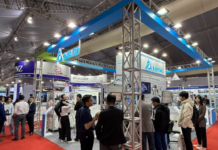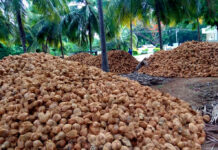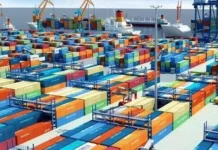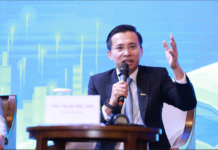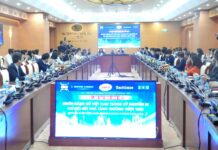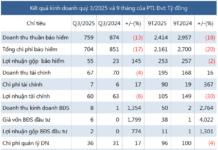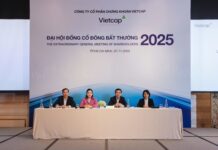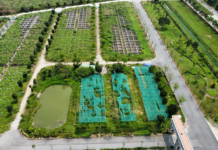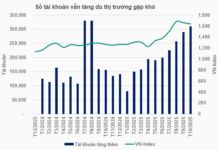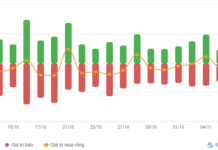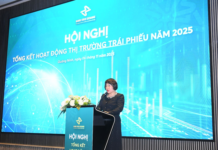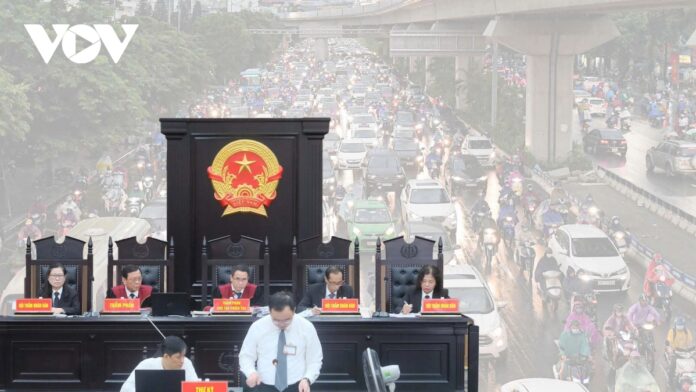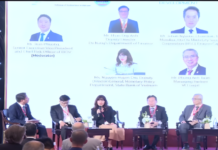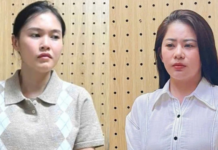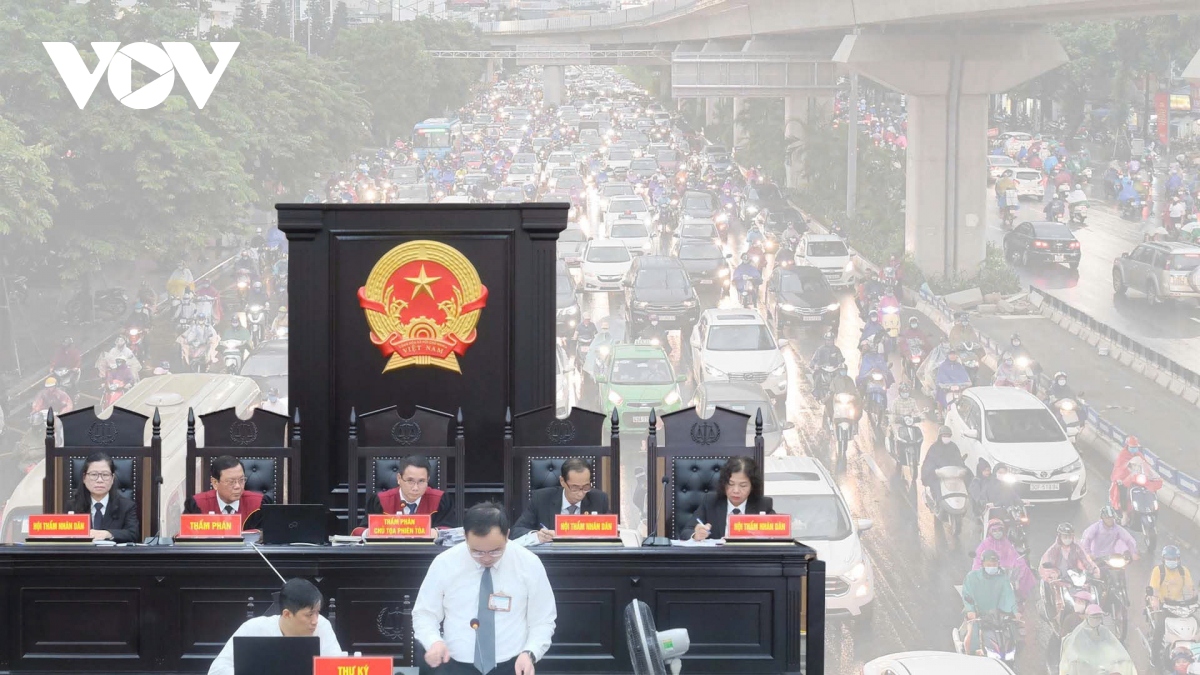
One of the issues that has captured public attention is whether the disciplinary actions and investigations leading to the prosecution of thousands of corrupt party members have slowed down or hindered the country’s socio-economic development. These concerns were raised at the 26th meeting of the Central Steering Committee for Corruption Prevention and Control, held last week and chaired by General Secretary and President To Lam.
In response to these concerns, General Secretary and President To Lam, Head of the Central Steering Committee for Corruption Prevention and Control, once again affirmed the unwavering determination to fight corruption, emphasizing that there will be “no pause,” “no break,” “no restricted areas,” and “no exceptions, regardless of who the person is.” However, the top leader also stressed that “corruption prevention and control must serve socio-economic development, and we must not let the vigorous efforts in this regard affect or hinder socio-economic development.”
The General Secretary underscored this requirement because, in reality, a section of officials and civil servants has emerged who avoid, shirk, or delay tasks due to fear of responsibility, or display a lack of responsibility, indifference, insensitivity, and harassment, causing inconvenience. Some ministries, sectors, and localities have not been truly proactive and resolute in ensuring the quality and progress of assigned tasks in certain cases, nor have they actively accompanied businesses to resolve and remove obstacles.
Pointing out these shortcomings and limitations is intended to strengthen our resolve to improve by perfecting the institution and law with a reformist spirit, accompanying businesses, unblocking bottlenecks, and unleashing resources. This spirit has been disseminated from the Central Party, the Politburo, and the Government, especially the Prime Minister, to ministries, sectors, and localities, so that all levels and sectors resolutely achieve the growth target for 2024 and the entire term. Notably, the head of the Government also requested the timely replacement of weak, sluggish, harassing, and negative officials and civil servants and resolutely dealt with negative acts in public investment management.
Pointing out these shortcomings and limitations does not mean that corruption prevention and control are hindering the country’s development and creating “paralysis” and “stagnation,” as some organizations and individuals with ill intentions are spreading to discourage investors.
Let’s look at the numbers to see that we are simultaneously carrying out two tasks: economic development and party building. We are not deviating from these tasks, nor are we hindering one for the sake of the other, in line with the motto “economic development is the central task, and party building is the key to success.”
The latest figures from the Ministry of Planning and Investment show that the socio-economic situation from the beginning of the year to now has recovered markedly, with each month and quarter being more positive than the previous one. Economic growth in the second quarter reached 6.93% over the same period last year, and the six-month figure stood at 6.42%. This is a positive growth rate, higher than the Government’s highest scenario of 6% and the forecasts of international organizations. UOB Bank predicted Vietnam’s growth for the second quarter to be 6%, BIDV forecast 5.9-6.3%, and Standard Chartered forecast 5.3%. After the results of the first six months, HSBC Bank stated that Vietnam is ready to grow strongly in the last six months.
The infrastructure system continues to be a priority for resource investment, with many works put into operation, opening up new spaces and development opportunities for localities, regions, and the whole country. More than 2,000 km of expressway have been put into operation, and the goal of having about 3,000 km of expressway by 2025 is feasible.
The urban transport system in Hanoi and Ho Chi Minh City has seen positive changes, especially in August, with the operation of the elevated section of the Nhon-Hanoi Railway Station route, and the Ben Thanh-Suoi Tien metro line is expected to be operational in December.
The 500kV power line project has become a typical example in organizing the construction and implementation of public investment projects, with many new ways of thinking and doing, mobilizing the participation of the people and socio-political organizations to complete the project in about eight months.
These are remarkable achievements, given the complex and unpredictable world situation, with many new factors and developments beyond the ability to forecast.
With these results, the Government sets the goal of striving for economic growth of 6.5-7% for the whole year (0.5% higher than the National Assembly’s resolution). The IMF forecasts that Vietnam will grow by an average of 6.4% in the 2024-2029 period, ranking among the top ten fastest-growing countries in the world.
However, socio-economic development achievements can only be sustainable when we have a truly honest apparatus. Therefore, the Party building and rectification must be carried out regularly and continuously. Party building and rectification are not just reflected in the number of Party organizations and members disciplined each quarter, or in the amount of corrupt assets recovered, but most importantly, in the continuous improvement of the institution to create an environment where there is no “dare” and “cannot” corruption.
Since the beginning of 2024, many regulations of the Party and laws of the State have been amended, supplemented, and newly issued to directly serve the work of corruption prevention and control. The Politburo and the Secretariat have issued more than 30 important documents. The National Assembly passed 13 laws, promulgated three resolutions, and considered and gave opinions on ten bills, including laws directly related to corruption prevention and control, such as the Law on People’s Courts (amended); Law Amending and Supplementing Some Articles of the Law on Auction of Assets; Land Law 2024; and Law on Credit Institutions 2024. The Government and the Prime Minister promulgated 98 decrees, and the ministries and sectors issued more than 300 circulars.
Notably, the National Assembly and the Government have directed the review and rectification of loopholes, inconsistencies, contradictions, overlaps, and problems in many legal documents on socio-economic management and corruption prevention and control, contributing to a synchronous, uniform, and feasible legal system that limits conditions that are easily exploited for corruption and negativity.
We are simultaneously promoting socio-economic development, expanding foreign relations, and stepping up corruption prevention and control. By fighting corruption, we are strengthening the people’s trust in the Party’s leadership and consolidating political and social stability. The replacement and handling of many officials may cause local changes for a certain period. Still, when there is a strong legal corridor and a stable “mechanism cage” to contain power, officials and party members, regardless of their level, will have to internalize the spirit: Those who cannot do it should step aside.


